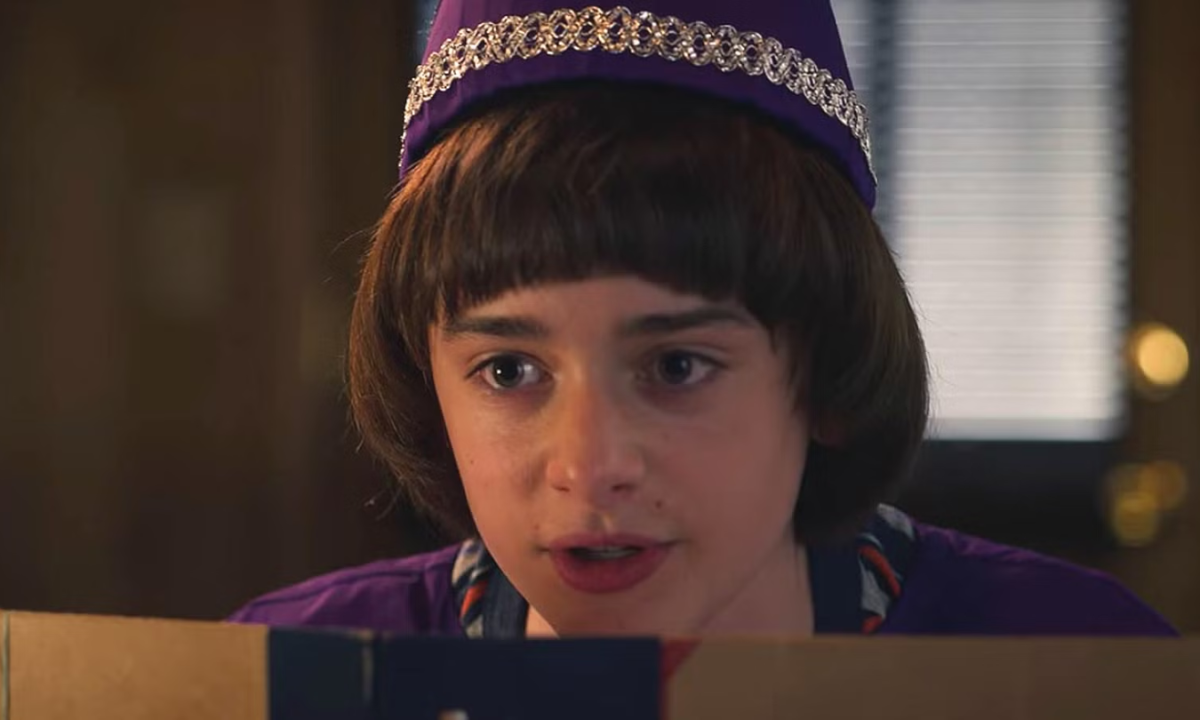Table of Contents
I’ve always loved Stranger Things for its mix of mystery, nostalgia, and just the right amount of weird. But the real fun started when I went down the rabbit hole of fan theories. Scrolling through Reddit threads, TikTok edits, Instagram reels, and YouTube breakdowns, I realized people have cooked up ideas that are as unbelievable as they are brilliant.
Some swear Vecna might secretly be Eleven’s father, while others argue the whole series could just be a giant Dungeons & Dragons campaign in disguise. It made me see Hawkins differently — not just as a town haunted by monsters, but by wild theories that make every rewatch feel like a treasure hunt.
Knowing these secret ST theories + rewatching for those details again, I have come up with a few conclusions: listed down below are those theories and my own version of why it could be true.
Theory 1: Vecna (Henry Creel is Eleven’s real father)
One of the wildest Stranger Things theories asks: Is Henry Creel (Vecna) actually Eleven’s biological father? After watching and rewatching the show, I speculate that Dr. Brenner might have used Subject-001’s DNA to impregnate Terry Ives, deliberately creating a child with even greater powers than Henry himself.
Why might this theory have been true?
- The timeline works — Henry would have been old enough around 1970 when Terry got pregnant — and his unsettling remarks to Eleven in Season 4, like “you remind me of myself,” feel less like coincidence and more like foreshadowing.
- Flashbacks also briefly show other male lab staff around Terry, hinting Brenner wasn’t the only player.
Why might the theory not be true?
According to the novel Suspicious Minds, Eleven has a father, and his name is Andrew Rich but fans often term this as canon. If Vecna were her father, it would add a chilling symmetry: the ultimate battle would be daughter versus father.
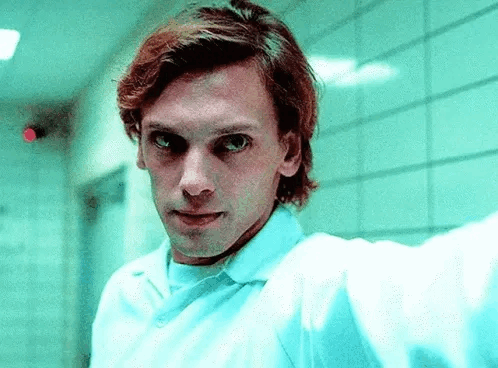
Bitch, I am full of felonies and wrongdoings. Bringing Eleven to the world ain’t one of it…
| Rings a bell? 🔔“Brenner’s obsession with ‘recreating’ Henry -> Feels exactly like it’s ripped from classic sci-fi—cloning in Star Wars or genetic engineering in The Boys series. |
Theory 2: Will Byers will become the supervillain of Stranger Things season 5
One of the most unbelievable Stranger Things theories asks: Could Will Byers actually end up as a supervillain, manipulated by Vecna, or even become the final threat himself? After rewatching the show, many fans speculate that Will’s long-lasting connection to the Upside Down isn’t just trauma — it’s foreshadowing of something much darker.
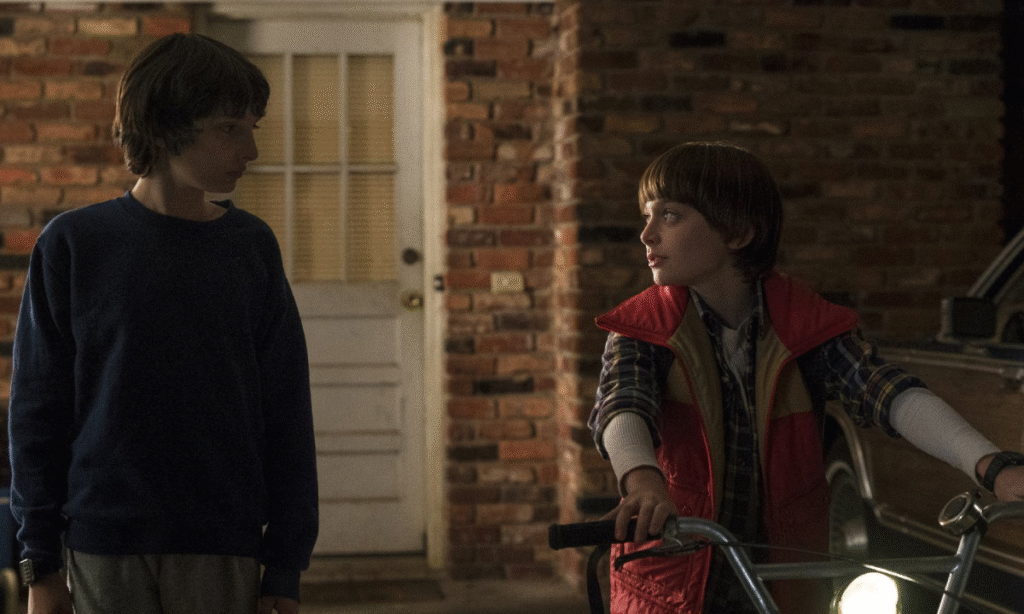
Just so you know, It’s either us becoming the endgame or the end for Hawkins.
Why might this theory have been true?
- Will has always been different since Season 1. The odd kid out. He feels the Mind Flayer before anyone else, experiences visions long after his rescue, and in Season 4 we see his emotional turmoil aligning with the spreading darkness.
- His painting of the party could symbolize destiny, not just art. Stranger Things often parallels Dungeons & Dragons — and in D&D, it’s not unusual for the quietest player to hold the most pivotal role.
Why might the theory not be true?
Will has been portrayed as the heart of the group, someone fragile yet hopeful, and turning him evil could undermine years of buildup. The Duffers also emphasized friendship as the core of the show, making a betrayal arc less likely. Still, if Vecna truly needs a vessel, Will’s lingering connection makes him the perfect candidate.
| Rings a bell? 🔔 The idea of the innocent boy becoming the ultimate enemy feels straight out of The Harry Potter series, where a part of Voldemort living inside Harry) or Frodo being corrupted by the ring in The Lord of the Rings. |
Theory 3: Upside Down is actually a reflection of your subconscious
One of the strangest Stranger Things theories asks: Is the Upside Down actually different for different people — a manifestation of their subconscious fears and trauma? Fans have often been talking about how Upside Down isn’t just an alternate dimension, but a psychological projection shaped by the minds of those connected to it, especially Will and Eleven.

Why might this theory have been true?
- When Will is trapped, the Upside Down mirrors Hawkins exactly as it was on the day he disappeared, suggesting his mind “locked” it in time.
- Vecna thrives on feeding off trauma, almost like a psychic parasite, which ties to how phobias and PTSD can reshape memory and perception.
- Scientific parallels:
- Carl Jung’s idea of the “Shadow” — the darker side of the psyche.
- Quantum observer effect — reality taking shape only when someone perceives it.
- Multiverse theories where each mind creates a different “branch” of reality.
- This could explain why each victim Vecna preys upon experiences a unique hallucination before being killed.
Why might the theory not be true?
The Upside Down is shown as a consistent world where multiple characters interact at once, which implies it exists independently of individual minds. Also, the show leans on sci-fi explanations (experiments, portals, psychic powers) rather than purely psychological ones.
| Rings a bell? 🔔A dimension shaped by fear echoes other series — like Silent Hill’s shifting worlds based on guilt, or Inception’s dreamscapes that collapse under emotional weight. |
Theory 4: Upside Down and demogorgons exist even before Dr. Brenner’s experiments
I saw this interesting thread on Reddit about how the Upside Down and creatures like the Demogorgon existed long before Brenner’s experiments or the Russian operations. Some fans argued that Hawkins Lab didn’t create these horrors, but merely stumbled upon them, disturbing something vile—an alternative ecosystem that remained unexplored for years—alternatively sending Vecna there to rule as a villain.
Why might this theory have been true?
- The Demogorgon appears almost instantly once Eleven makes contact — too fully formed to be a lab creation.
- In Season 4, Eddie’s uncle Wayne mentions Hawkins being cursed long before any “scientific” meddling, suggesting a deeper history.
- Even science supports the Upside Down and similar concepts.
- The multiverse concept, where parallel dimensions exist independently, waiting to be breached.
- Archeological mystery stories where ancient forces predate human discovery (similar to how The Mist or The Thing presented hidden alien ecosystems).

- The Russian tunnels and gateways imply that the Upside Down is more like a naturally existing parallel realm, not just a byproduct of experiments.
Why might the theory not be true?
Dr. Brenner’s obsession with creating psychic soldiers points to deliberate tampering, and Eleven’s opening of the first gate suggests human intervention awakened or destabilized the Upside Down. Without her powers, Hawkins might never have been exposed.
| Rings a bell? 🔔The idea of humans tapping into a long-existing dimension feels straight out of Lovecraft — forces older than humanity, lying in wait until someone pries open the wrong door. |
Theory 5: The whole Stranger Things is a D&D campaign. Nothing’s real
One of the craziest Stranger Things theories asks: what if everything we’ve watched is actually just a long Dungeons & Dragons campaign? In this version, Hawkins, Vecna, the Upside Down — all of it — exist only in the boys’ imaginations as they roleplay. Each monster mirrors a D&D villain, every season’s arc feels like a campaign quest, and even the big bad Vecna is literally lifted from their handbook.
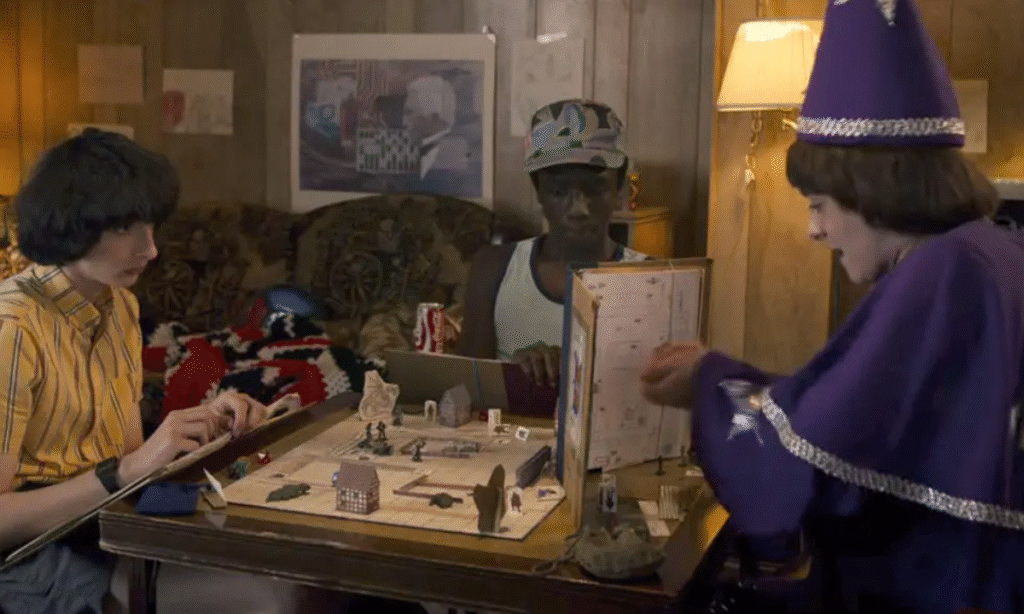
Why might this theory have been true?
- The series opens and closes key moments around D&D sessions, like bookends.
- Each season introduces a new “boss” straight out of their campaigns: the Demogorgon, the Mind Flayer, Vecna.
- Will, often the Dungeon Master’s favorite, is both player and character — blurring the lines.
- Meta parallels: sitcoms like St. Elsewhere ending in a child’s snow globe, or Inception questioning what level of reality we’re in.
Why might the theory not be true?
The Duffers have denied a “dream / not real” ending, since it would undercut the emotional stakes. Also, multiple perspectives outside the boys’ group (Hopper, Joyce, Billy, etc.) show detailed lives that wouldn’t make sense inside a D&D fantasy.
| Rings a bell? 🔔It feels like Stranger Things is the ultimate campaign notebook — the way The Princess Bride was a story within a story, or The Lego Movie revealed an entire adventure was a child’s imagination. |
Theory 6: Music can save Hawkins in season 5
One of the wildest Stranger Things theories asks: Could music literally save Hawkins, with rock & roll becoming the ultimate weapon against Vecna? After Season 4 showed Kate Bush’s Running Up That Hill freeing Max from Vecna’s grasp, some fans believe that music isn’t just a comfort — it’s a kind of supernatural shield.
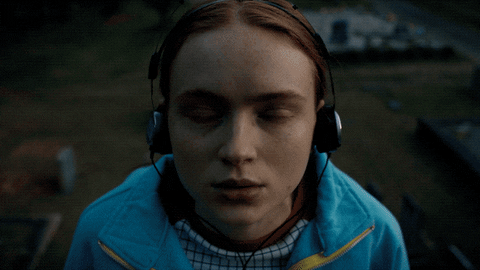
Why might this theory have been true?
- Music already disrupts Vecna’s psychic control, pulling victims back from his curse.
- Eddie’s guitar solo in the Upside Down wasn’t just epic — it hinted that sound waves and rhythm could pierce through Vecna’s world.
- In neuroscience, rhythm and melody stimulate memory, resilience, and even trauma recovery. Sound therapy is used to calm the brain, so why not extend that to defeating a psychic villain?
- Rock & roll is rebellion — and Hawkins’ kids fighting evil with guitars mirrors how counterculture often rises against oppressive forces.

Not Eddie resurrecting in season 5 to play that banger that once drove away mad bats.
Why might the theory not be true?
Music might work symbolically, but it’s unlikely to be the “weapon” that kills Vecna — more of a tool to stall him. The final battle will probably lean on Eleven’s powers, not Eddie’s playlist. Still, the combination of raw psychic energy and raw guitar riffs is exactly the kind of over-the-top cinematic ending fans dream of.
| Rings a bell? 🔔It’s pure Scott Pilgrim vs. The World vibes—where music isn’t background noise but a literal weapon against evil. |
Theory 7: Hopper knows who Eleven’s father is
One of the more underrated Stranger Things theories asks: Did Chief Hopper actually know who Eleven’s biological father was all along? It didn’t take fans too long to put one and one together: guess that Hopper’s mysterious Vietnam past and his time working with classified government operations may have brought him into contact with Henry Creel (Vecna) or another man tied to Brenner’s experiments.
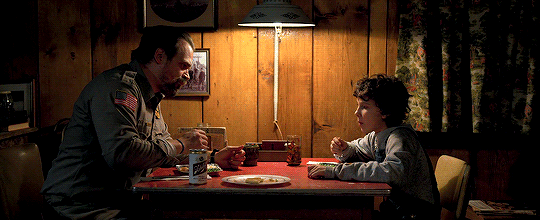
Why might this theory have been true?
- Hopper’s “dad” box in his cabin, along with vague military references, suggests untold history.
- His protective instinct toward Eleven sometimes feels deeper than just a surrogate father figure, as if he knows more about her origins.
- The Vietnam era was also when Brenner’s MKUltra experiments were peaking, hinting Hopper may have brushed against the same shadowy networks.
- In storytelling, the trope of the hardened soldier secretly knowing the truth about a child’s origins echoes arcs from series like Lost or even The X-Files.
Why might the theory not be true?
What if Eleven – Hopper bond is rooted in the loss of his daughter Sara—not hidden knowledge about her past? Giving him prior awareness could undercut the emotional weight of his fatherly journey.
| Rings a bell? 🔔 It’s very Star Wars—the idea that a gruff protector knows more about the child’s parentage but keeps it buried until the right moment. |
Finally,
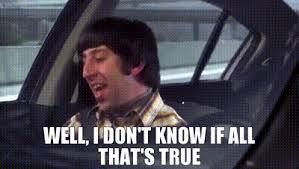
Whether or not these theories turn out to be true, they highlight what makes Stranger Things so addictive: its ability to blur the line between reality, fantasy, and fan imagination. Maybe Vecna is Eleven’s father, maybe Will is destined for darkness, or maybe it’s all just a game around a D&D table. The fun isn’t in knowing the truth yet — it’s in debating the wildest possibilities until the final credits roll.
